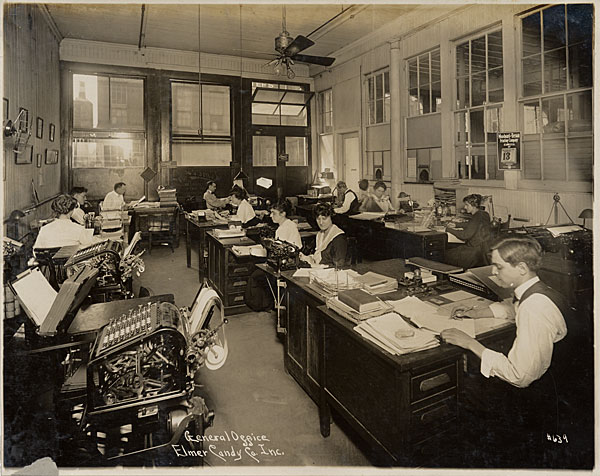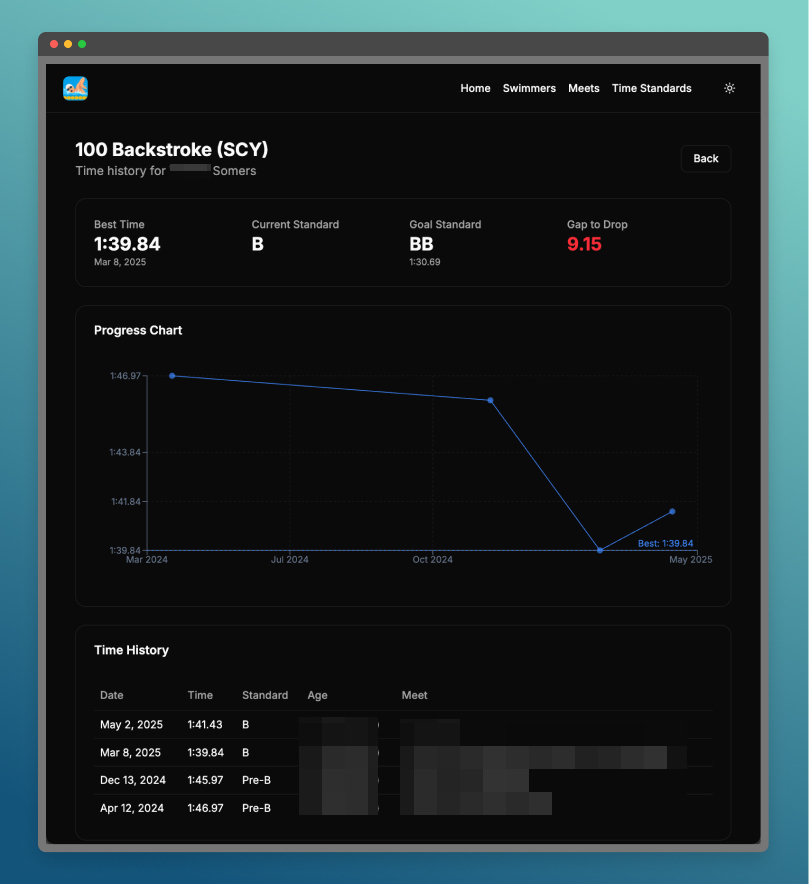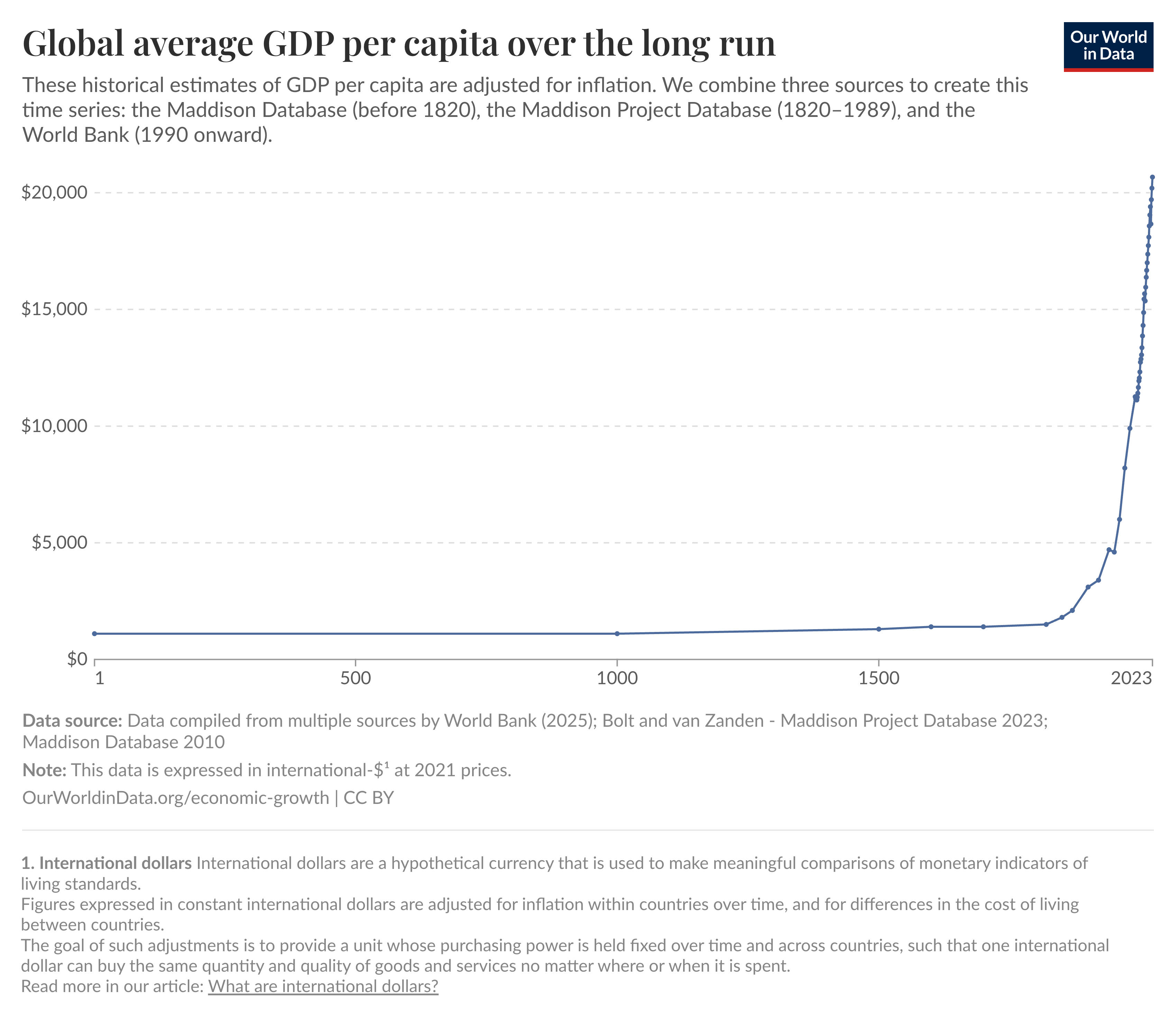There will be work
When humans automate the mundane, their creations are even greater - and our standard of living goes up
Every major technological shift in history has caused panic about jobs. Yet, history keeps proving us wrong.
In 1790, about 90% of Americans worked on farms; today it's roughly 1%. Most of us don't even know how to grow our own food! My wife and I recently started watching Clarkson's Farm, where Jeremy Clarkson tries—and hilariously fails—to take over his farm, making mistake after mistake despite all his resources.
It's funny, yet revealing: the work disappeared, but the world didn't fall apart. We just moved on to new kinds of work and left behind painful drudgery. Rather than work the fields, Clarkson got to make his living making shows about cars.
 (via Wikimedia Commons)
(via Wikimedia Commons)
Before Excel (née VisiCalc), entire rooms of clerks spent days penciling numbers into 14-column ledgers and re-totalling them on clacking adding machines; a scenario change meant erasing, re-entering, and re-adding every figure from scratch. Those jobs disappeared but accounting work didn’t - finance moved "up the stack" and created much better jobs like private equity, investment banking, and venture capital.
The pattern is clear: automation deletes drudgery and hands us a bigger canvas.
Why the current layoffs feel so bad
Yes, the headlines sting: ~165,000 U.S. tech workers were laid off in 2024.
It's even more jarring because the last decade of ZIRP made it easy for companies to simply hire more people, opening the door to well paying white collar jobs for millions. More people also meant you could specialize, spending more time going deeper in your craft.
To put it simply - we got to have fun with friends, spending time mostly doing what interested us and getting paid really well to do it.
But that came costs. Big teams often struggle to move fast. And most tech companies were not profitable until after recent cuts.
Smaller teams, greater leverage
After moving from larger companies to a seed-stage AI startup last year, I'm learning firsthand how powerful small teams of AI-enabled generalists can be.
GoodDay Software went from zero code to powering live merchants’ inventory in under 2 years with fewer than 10 engineers. We're already competing with (and displacing!) the established incumbents with teams 10x larger.
Features that once took quarters when I built them in past lives now get shipped in weeks, thanks to small teams that can make decisions quickly, aided by AI.
I'm a busy dad that's doing more than ever
Before having kids, I could tinker for weeks in PHP or Rails and still not ship. It was generally a fun learning experience and hobby that aided my career - but I didn't deliver a ton of value.
Contrast that with the last 6 months since I discovered vibe coding.
A few months ago in a few evenings after the kids were in bed, I vibe coded a whole app for my daughters to track their progress in competitive swimming times and get real time feedback at meets. I've continued to iterate the app while sitting in the stands at the meet because vibe coding means I can prompt through ideas rather than analyzing and writing code that would have required far more focus.

AI collapsed weeks into hours and turned idle time in the bleachers into my development studio.
In my "learn to code" days a decade ago, this would have been my crowning achievement over many months. But I haven't just accomplished this one thing - I've rebuilt my portfolio for the first time in too long, written blog posts like this one, created multiple little utility apps, and built scripts to automate parts of my job. I've shipped dozens of PRs to our codebase after having stepped back from code for many years.
 Take a guess when I started vibe coding
Take a guess when I started vibe coding
AI enables an individual busy dad like me - and humanity - to do more. History has shown this arc of progress leads to better outcomes, not worse.
The pie will grow
I love this chart because it's a reminder that the human existence remained unchanged for most of human history. It wasn't until we started automating away survival mode that work and art flourished.
 Global average GDP per capita over the long run (via Our World in Data)
Global average GDP per capita over the long run (via Our World in Data)
AI is no different. Yes, jobs are going away. But I'm taking the bet on human ingenuity and survival. And that we learn, adapt, and find ways to add value to others in a way that creates economic value (i.e., work). It's in our DNA.
The best part is - when barriers fall this low, more people build, niches bloom, and entirely new categories emerge. The result isn’t scarcity—it’s abundance.
So what to do?
I know what I'm doing. I'm tinkering. I'm building. I'm exploring curiosities and seeing where they go.
This AI-powered future will reward the makers. The people that know what questions to ask. Who can find unmet human needs. People who can combine disparate topics to come up with new unexplored solutions.
You have every expert that's ever lived accessible through a handful of prompts.
So don't overthink it - pick an idea, crack open your favorite tool, and build boldly.